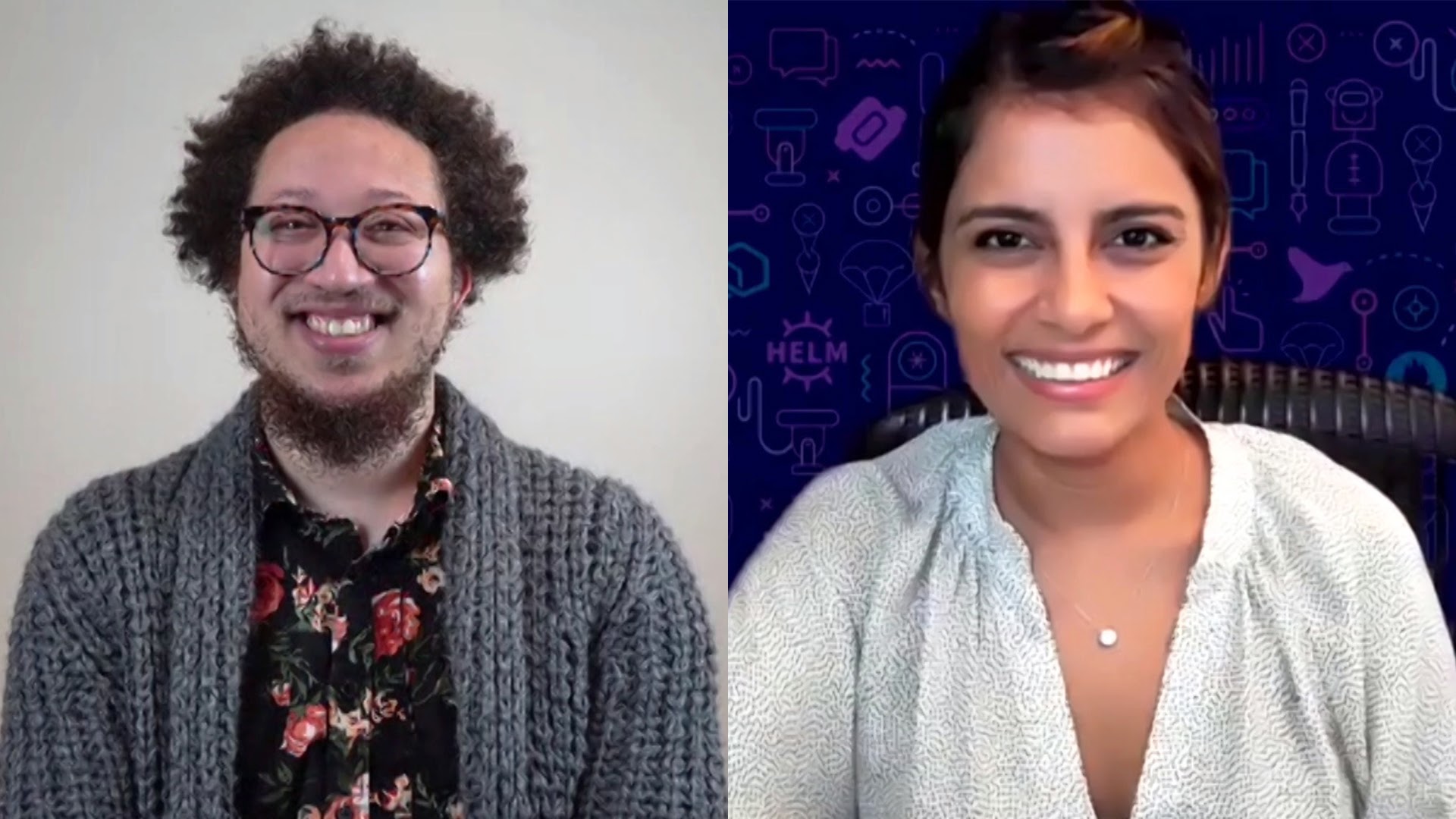 CLOUD
CLOUD
 CLOUD
CLOUD
 CLOUD
CLOUD
Over the years, software engineers have selected terminology to describe the coding world they created. Unfortunately, unconscious biases seeped into the process and problematic descriptors have become embedded into computer programming language.
The issue has been recognized for some time, but the industry has lacked a coordinated plan to instigate nomenclature change. Now, under the leadership of Priyanka Sharma (pictured, right), general manager of the Cloud Native Computing Foundation, the CNCF has started the Inclusive Naming Initiative to identify potentially harmful language and systematically replace divisive terms with inclusive ones.
“We want to be able to provide a place of conversation for people at different stages so we get aligned now, rather than a year later, where everybody has their own terms as replacements and nothing works,” Sharma told John Furrier, host of theCUBE, SiliconANGLE Media’s livestreaming studio.
Sharma and Stephen Augustus (pictured, left), senior open-source engineer at VMware Inc. and KubeCon co-chair, joined Furrier for a virtual discussion on inclusive language in code during the KubeCon + CloudNativeCon NA event. (* Disclosure below.)
Divisive terms have “no place in an inclusive world, inclusive software, [or an] inclusive community,” according to Sharma. But getting rid of them is a lot harder than implementing a find-and-replace search. Where it gets tricky is replacing language in processes with lots of moving parts, such as application programming interfaces.
“If offensive language is in one of our APIs, we have to work through our deprecation policy to get that done,” Augustus said.
Acknowledging existing efforts and facilitating discussion to create consensus is also essential, according to Augustus. “You need buy-in from the code owners,” he stated. “If it’s an API that you’re touching, it’s a conversation that you need to have with the [special interest group] architecture, as well as, say, SIG docs.”
An existing working group to remove problematic language in Kubernetes has been instrumental in starting the Inclusive Naming Initiative.
“We’ve done some work on providing a language evaluation framework, providing templates for recommendations, [and] providing a workflow for moving from a suggestion into actuating those ideas and removing that language,” Augustus said.
The language evaluation framework created by the Kubernetes work group has three orders of concern based on the potential harm a word or phrase could cause. First-order concerns are those that need to be eliminated immediately. The two most obvious examples are master-slave architectural control and whitelisting or blacklisting to denote if an application is allowed or should be excluded from a system, according to Augustus.
“Having a framework to make it easy to do those evaluations is what we’ve been craving, and now we have it,” he said.
The goal of the Inclusive Naming Initiative is to create one cohesive place where people can collaborate on solutions and learn from one another, according to Sharma. And input from language specialists and others outside the open-source community is needed to make sure the process is done right.
“Let’s bring in the standards bodies, let’s bring in the vendors, let’s bring in the open-source projects, give them guidelines and blueprints that we are lucky that our projects are able to generate [and] combine it with learnings from other people,” she said.
As well as Sharma’s keynote speech on the new working group, two KubeCon sessions will focus on inclusive naming.
“Everybody will have a seat at the table,” she said. “Team cloud native is for everyone. Open source is for everyone.”
Watch the complete video interview below, and be sure to check out more of SiliconANGLE’s and theCUBE’s coverage of the KubeCon + CloudNativeCon NA event. (* Disclosure: The Cloud Native Computing Foundation sponsored this segment of theCUBE. Neither the CNCF nor other sponsors have editorial control over content on theCUBE or SiliconANGLE.)
THANK YOU